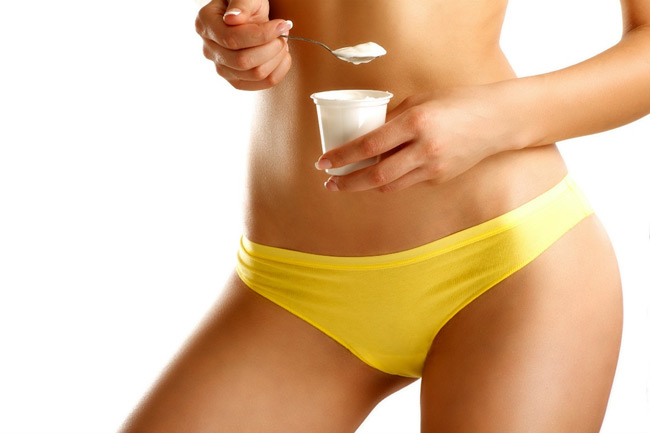
As women age and turn mature the need apart from skin sagging also need to take extra care for their vaginal health. Women Fitness brings to you a study on Anti Aging techniques for mature women vaginal health.
A study by the Association of Reproductive Health Professionals showed that more than half of women lack basic knowledge when it comes to understanding their genitalia. Misconceptions can prevent you from having a healthy, satisfying sex life, especially after you hit 40, so it’s important to know exactly what’s going on down there.
Just like every other part of the body, the vagina changes with age. Issues such as low libido, vaginal dryness and chronic pain can arise. But don’t be alarmed. All of these problems are common and can be solved.
Based on information gathered from leading gynecologists, Dr. Oz discloses what you need to know about your vagina after age 40 so you can maintain a happy, healthy sex life.
Thinning of the Vaginal Walls
In your 20s and 30s, the vaginal walls are bathed in hormones making them strong and robust. But as you enter your 40s, hormone levels, namely estrogen, gradually start to decline. This causes the walls, which are comprised of mucous membranes (vaginal mucosa) to become less resilient and more susceptible to trauma. Inflammation or tears are more likely to occur which can cause pain during sex.
To check for thinning vaginal walls, take a handheld mirror and observe the color inside the opening of your vagina. Deep pink signifies healthy vaginal tissue, whereas, pale or very light coloring can mean fragile vaginal mucosa. If you think you have a problem, see your gynecologist who will examine the entire inside of the vagina with a speculum.
Remember, even if you’re not exhibiting symptoms you still need to your gynecologist once a year for routine checkups.
Treatment
Treatment for thinning of the vaginal walls includes estrogen creams or tablets that can be inserted directly into the vagina; an estrogen patch you can change weekly; or a vaginal estrogen ring made of rubber or silicone, which can be kept in the vagina for 3 months. For an alternative to estrogen therapy, try moisturizing the vagina with a little olive oil.

Vaginal Atrophy
Reduced estrogen levels can also cause shrinkage of the vaginal mucosa, which results in narrowing of the vaginal opening called the vestibule. In this case, pain can occur during initial penetration but often subsides once the penis is deeper inside. About 90% of vaginal pain occurs in the vestibule region.
Treatment
Vaginal atrophy can be treated with vaginal dilators – available in different widths and sizes – to help improve the elasticity and pliability of the vagina. Treatment usually involves 5 minutes of daily use with a lubricant. Be sure to discuss with your gynecologist before trying this treatment.
Your pelvic floor – just like your biceps – is made of muscle. Sex on a regular basis actually helps keep your vagina in shape. Kegel muscle exercises help, too. Click here to learn how to exercise those love muscles.
Medication and Its Side Effects
Many common medications such as birth control pills, antihistamines and anti-depressants can cause vaginal dryness, which is already an issue after age 40, again due to lower estrogen. As a rule of thumb, medications that list dry mouth as a side effect also cause vaginal dryness. Low libido is another common side effect associated with hormonal change and/or certain medications, especially anti-depressants in the SSRI (serotonin reuptake inhibitors) category.
Treatment
A variety of lubricants – oil-, water- and silicone-based – effectively combat vaginal dryness. Talk to your gynecologist to see what brand they recommend. Saliva also works well as a lubricant and can enhance foreplay.
Misconceptions About the Female Orgasm
The better you know your body, the better your chance of having a fulfilling sex life. However, women after age 40 often suffer the same problem as they did at age 20: they obsess over finding the G-spot. But the G-spot is hardly the only road to sexual nirvana. Female orgasms can happen in a variety of ways including stimulation of the clitoris, the vagina or a combination of both areas.
According to the Mayo Clinic, the definition of vaginal atrophy is thinning and inflammation of the vaginal walls due to a decline in estrogen. Vaginal atrophy occurs most often after menopause.
It’s hard to believe that Mother Nature could be so cruel. Maybe it’s Father Time who is the source of the dry, itchy, inflamed vagina. No matter who is to blame, it’s a bum rap for menopausal women to suffer with vaginal unrest. As if you don’t have enough problems.
Because of the controversy regarding hormone replacement therapy, many women are turning to Mother Nature to find remedies for vaginal dryness, inflammation, and atrophy.
Natural anti-aging solutions that may help revitalize your aging vagina.
1.Vitamin E – vitamin E oil can help hydrate vaginal membranes. Just crack open a vitamin E capsule and apply the oil directly in the vagina to increase lubrication and soothe the vaginal lining.
2. Vitamin C – taking 500 – 1,000 mg of antioxidant-rich vitamin C daily is an excellent way to help protect the vaginal lining.
3. Zinc – if taken as a daily lozenge, zinc is good for immune support during a vaginitis outbreak. It is thought to revive vaginal tissue as well. Wheat germ, seafood, meat, and oats are all good food sources. However, do not take over 45 mg of zinc daily. (University of Maryland Medical Center).
Disclaimer
The Content is not intended to be a substitute for professional medical advice, diagnosis, or treatment. Always seek the advice of your physician or other qualified health provider with any questions you may have regarding a medical condition.